google-site-verification: google85f203565cb16b4c.html
Making Better Thought-Movies One Truth At A Time
_________________________________
The Parable of the
Laborers and the Vineyard
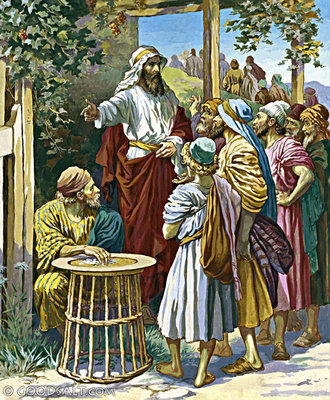
The Parable of the Laborers and the Vineyard:
Matthew 20.1-16
“For the Kingdom of Heaven is like the landowner who went out early one morning to hire workers for his vineyard. 2 He agreed to pay the normal daily wage and sent them out to work.
3 “At nine o’clock in the morning he was passing through the marketplace and saw some people standing around doing nothing. 4 So he hired them, telling them he would pay them whatever was right at the end of the day. 5 So they went to work in the vineyard. At noon and again at three o’clock he did the same thing.
6 “At five o’clock that afternoon he was in town again and saw some more people standing around. He asked them, ‘Why haven’t you been working today?’
7 “They replied, ‘Because no one hired us.’
“The landowner told them, ‘Then go out and join the others in my vineyard.’
8 “That evening he told the foreman to call the workers in and pay them, beginning with the last workers first.
9 When those hired at five o’clock were paid, each received a full day’s wage.
10 When those hired first came to get their pay, they assumed they would receive more. But they, too, were paid a day’s wage.
11 When they received their pay, they protested to the owner,
12 ‘Those people worked only one hour, and yet you’ve paid them just as much as you paid us who worked all day in the scorching heat.’
13 “He answered one of them, ‘Friend, I haven’t been unfair! Didn’t you agree to work all day for the usual wage?
14 Take your money and go. I wanted to pay this last worker the same as you.
15 Is it against the law for me to do what I want with my money? Should you be jealous because I am kind to others?’
16 “So those who are last now will be first then, and those who are first will be last.”
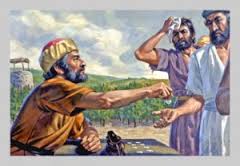
Pay time for the laborers reveals flawed motives!

|
Parables are powerful "word-pictures" that are meant to be engrafted into our thinking...as mental pictures do control our thought-life. That's
where the "imagination" gets involved. The imagination allows mental exploration of the past,
present, future. It is the ability to see pictures and images in the
"movie theater" of the mind. The imagination is the "workshop" of the
human mind. It is the only thing in the world we have complete control
over. That's why GOD takes great interest of what goes on there, and judges what we allow to grow there - Genesis 6.5 |
Laborer hours and wages are the owner's call, not ours...
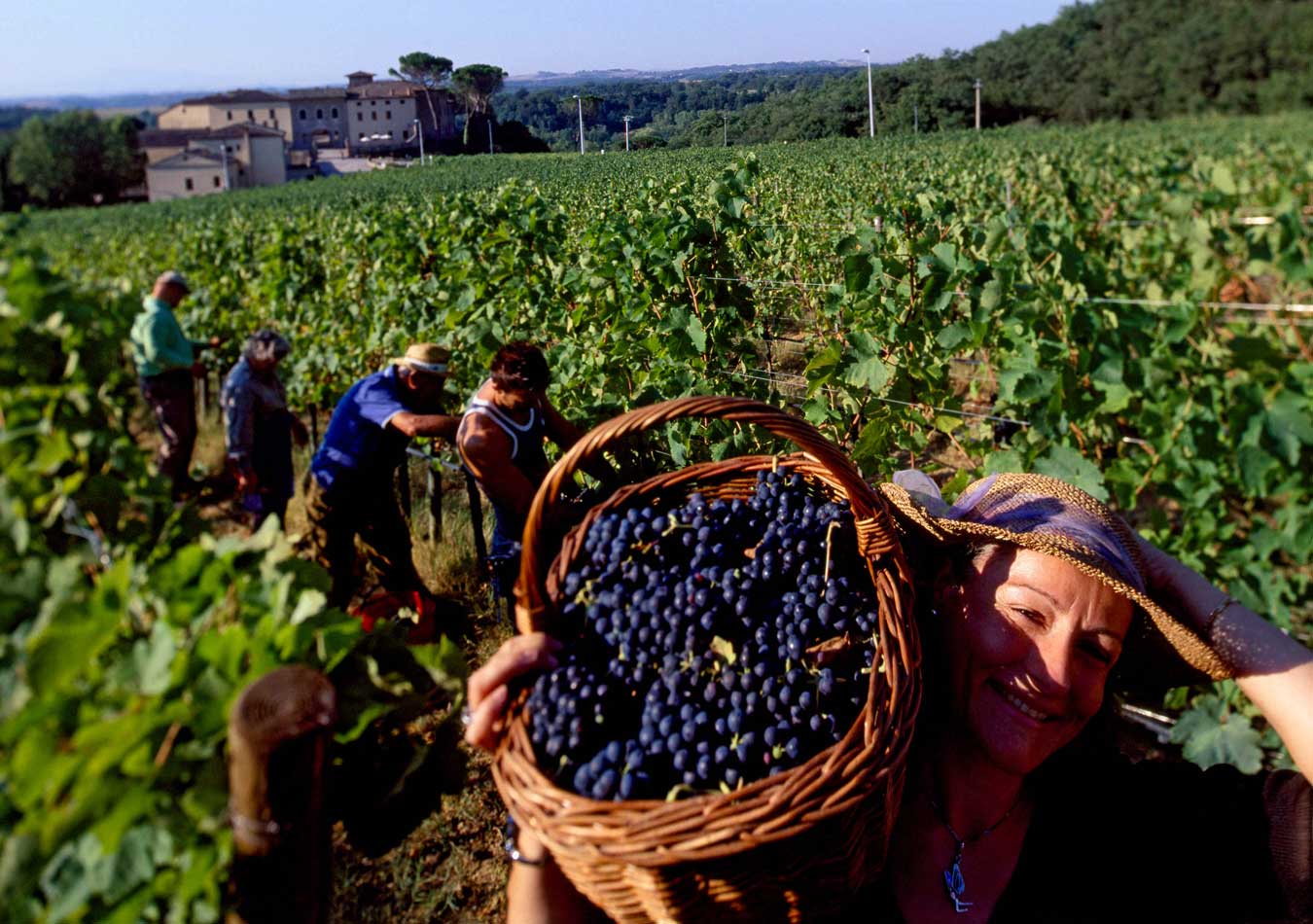
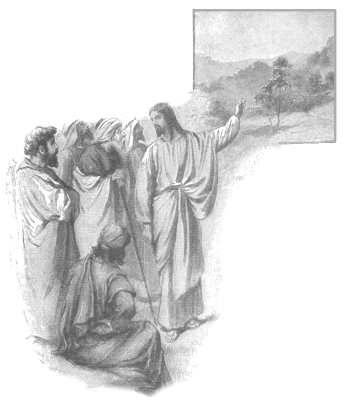 |
The message of this parable is clear - "But he answered one of them, Friend, I am not being unfair to you. "Did you not agree to work for 20 dollars? Take your pay and go. I chose to give the person who worked one hour the same as I gave you. Do I not have the right to do what I want with my money? Or, are you envious because I am generous? So, the last will be first, and the first will be last." The way GOD chooses to give to any of us, is entirely His decision... |
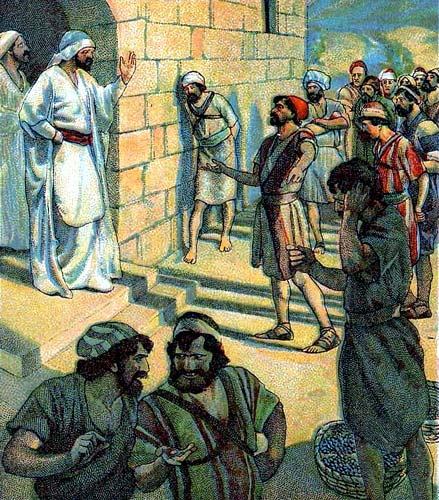 Complaining laborers... 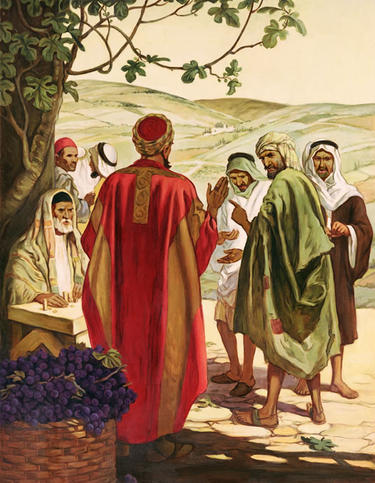 |
|
Another thought...
- What about the laborers who were "not" hired?
- There were individuals in the marketplace ready to go to work
- No-one hired them - this is tragic
- Some people are willing and ready to work, but never get hired into the vineyard. The assignment, the destiny, the opportunity they have been waiting for - does not happen.
- They are those who just want to go and work in the vineyard.
- Any person "not hired" has little, if any, chance of multiplying his or her talents. It is by working in the vineyard that the talents are multiplied and increased.
- The individuals could not be hired by staying at home. The hiring takes place in the "marketplace." This is the place where the connection for working in the vineyard is made.
- Work is good for everybody.
- Work is therapy.
- Work creates happiness and self-worth
- No wages are paid to individuals who do nothing else but stand in the marketplace...work starts through contact with the landowner or his representative who give instructions and direction as to everything that is expected for them to work and get paid.
- The landowner came out to get more people hired many times throughout the day - which gives us confidence that work is available, and whatever time of the day that each one of us get to the marketplace - that there is still opportunity to have the landowner come out - and hire laborers to have the opportunity to work in the vineyard
Empowering Questions...
- Where did the landowner get the individuals he hired?
- Do you think the individuals who were hired at five o'clock were waiting to be hired all day - but continued to wait until the next group were hired?
- Or, did he hire all who were waiting, or just some of them each time he came by?
- Which would you say would be more stressful: working all day, or waiting to be hired all day? The answer to this is that once hired, the workers knew that they would be getting paid at the end of the work day... those not hired, still had to face the possibility of "no work" - and no chance to provide his family of basic food and needs. Working is less stressful...
- What is the significance of the landowner coming out every three hours?
- Does the reasoning of the landowner make sense to you, or do you agree with the complaining workers?
- Is there a reason why they paid the five o'clock, one-hour workers first? I think this was GOD's way to flush out the false reasoning we all struggle with...
Making Better Thought-Movies One Truth At A Time
_________________________________
Bible Study Lessons
- Abandonment
- Abilities
- Abortion
- Abuse
- Addiction
- Accusations
- Adultery
- Anger
- Apathy
- Ashamed
- Attitudes
- Backsliding
- Betrayal
- Bitterness
- Born Again
- Chance
- Conscience
- Deceit
- Deception
- Discipline
- Discretion
- Eyes of GOD
- False Witness
- Fear of the Lord
- Fear -Lord #2
- Flattery
- Friendship
- Fool, A
- Foolishness
- Forgiveness
- Giving
- Inheritance
- Injustice
- Instruction
- Judgment
- Kindness
- Knowledge
- Lawlessness
- Lies, Lying
- Misunderstand
- Pleasure
- Pride
- Problems
- Soft Answers
- Speech
- Understanding
- Vengeance
- Wisdom

Parables by Jesus
- Children of Bridechamber
- New Patch, Old Garment
- New Wine, Old Wineskins
- Treasures Old and New
- Spontaneous Growth
- Mustard Seed
- The Leaven
- Hidden Treasure
- Pearl of Great Price
- Dragnet
- The Soils
- Children at Play
- Wise and Foolish Builders
- The Wheat and the Tares
- Empty House
- Uncompleted Tower
- Rash King's Warfare
- Chief Seats
- Pharisee and Publican
- Two Debtors
- Unmerciful Servant
- Barren Fig Tree
- Bond Servant
- Unjust Steward
- Rich Fool
- Rich Man and Beggar
- Good Samaritan
- Laborers and the Hours
- Friend at Midnight
- Importunate Widow
- Lost Sheep
- Lost Coin
- Prodigal Son
- Elder Brother
- Two Sons
- Cruel Vine-Dressers
- Rejected Cornerstone
- Great Feast
- Wedding Robe
- Wise and Foolish Virgins
- Talents
- Good Shepherd